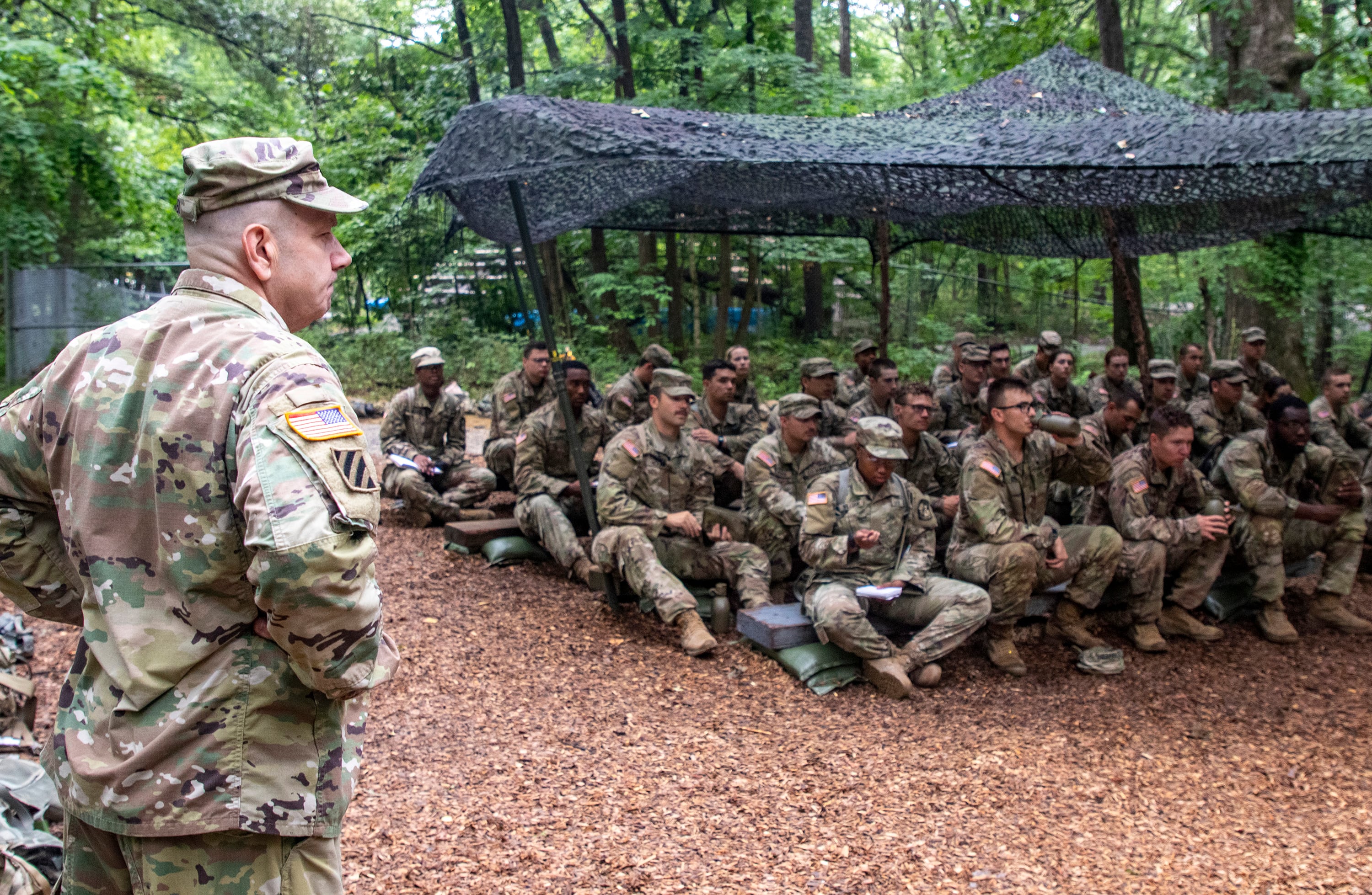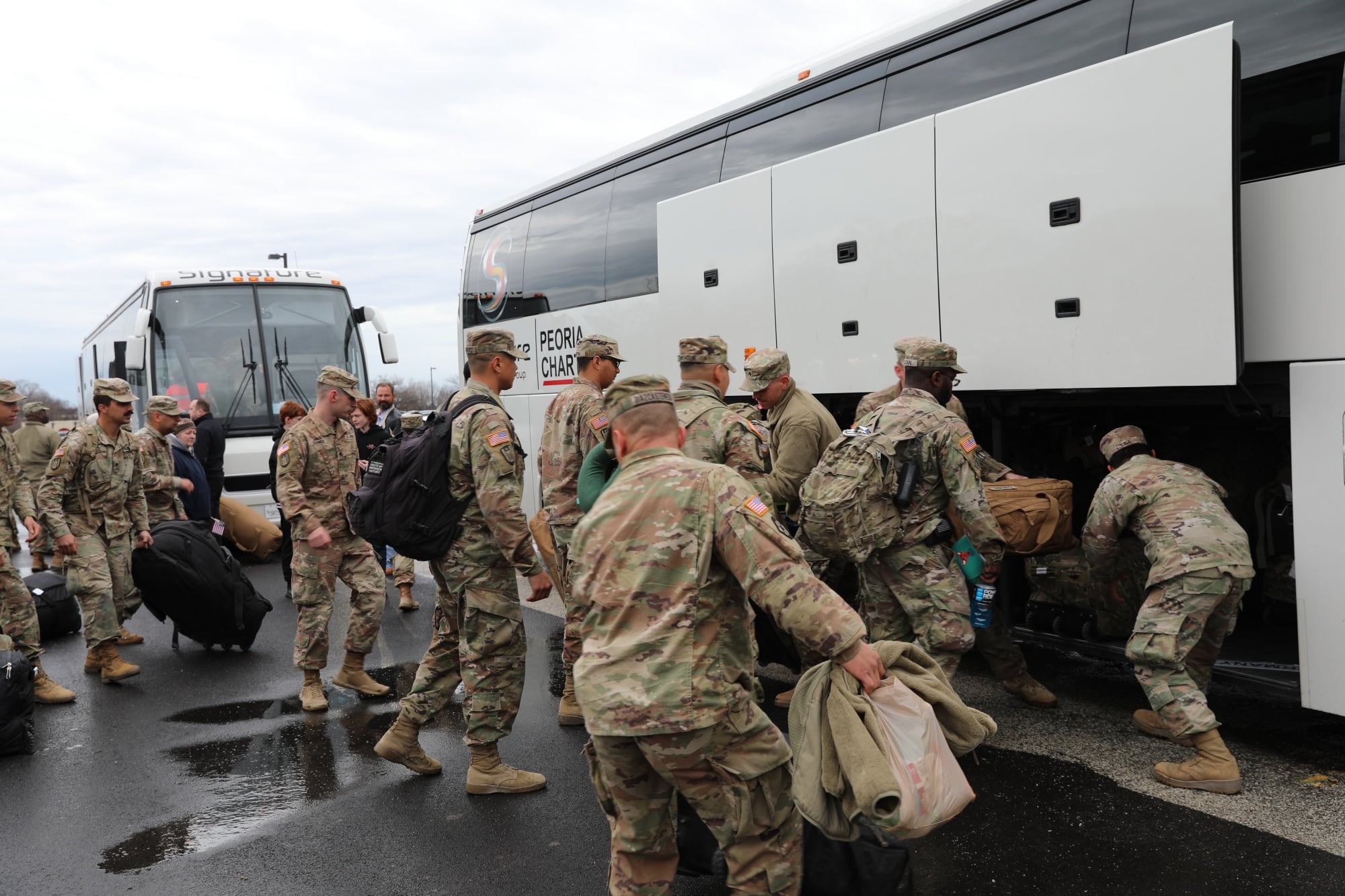WASHINGTON — The Army’s top general wants to see more and better public transit options for soldiers living on installations across the county, he said Monday at the Association of the U.S. Army’s annual conference.
Gen. Randy George, who was confirmed as the service’s chief of staff on Sept. 21, suggested during a press conference that expanding on-base public transit could help improve the quality of life for junior soldiers.
“Public transportation — I think we’ve got to get after that,” George said, suggesting that expanding bus routes and other means of transportation could improve access to food for service members residing on-post who may not have a vehicle of their own or other means of easily getting around base or off-post.
George and Army Secretary Christine Wormuth said that transport was one of many factors that left several bases without adequate dining options for troops over the summer.
At some installations like Joint Base Lewis-McChord, Washington, and Fort Cavazos, Texas, deployed units were unable to staff their dining facilities and keep them open for soldiers who didn’t go overseas. According to an August Military.com investigation, some soldiers at the Texas post were forced to drive an hour’s round trip in order to eat.
Officials at Fort Knox, Kentucky, temporarily struggled to keep food flowing during Cadet Summer Training when contract employees at its dining facilities went on strike due to unpaid wages.
RELATED

Wormuth praised how leaders responded to the Fort Knox strike — Cadet Command and the garrison rapidly sourced uniformed cooks to restore food services after a few days of MRE rations — but said that commanders need to learn a lesson about planning for culinary contingencies.
“In some cases, we’ve had cooks deployed to the field or go to exercises and not be available to run the [dining facilities],” the secretary said. “That is foreseeable — we have to do a better job of planning for that…[and] make sure that our garrison commanders are working together with senior commanders and trying…to plan ahead.”
George cautioned, however, that “every installation is going to be a little bit different.” Solving food access problems will come down to getting local commanders the resources they need to address them, he said.
Davis Winkie covers the Army for Military Times. He studied history at Vanderbilt and UNC-Chapel Hill, and served five years in the Army Guard. His investigations earned the Society of Professional Journalists' 2023 Sunshine Award and consecutive Military Reporters and Editors honors, among others. Davis was also a 2022 Livingston Awards finalist.





